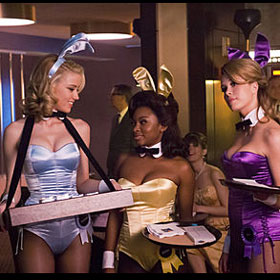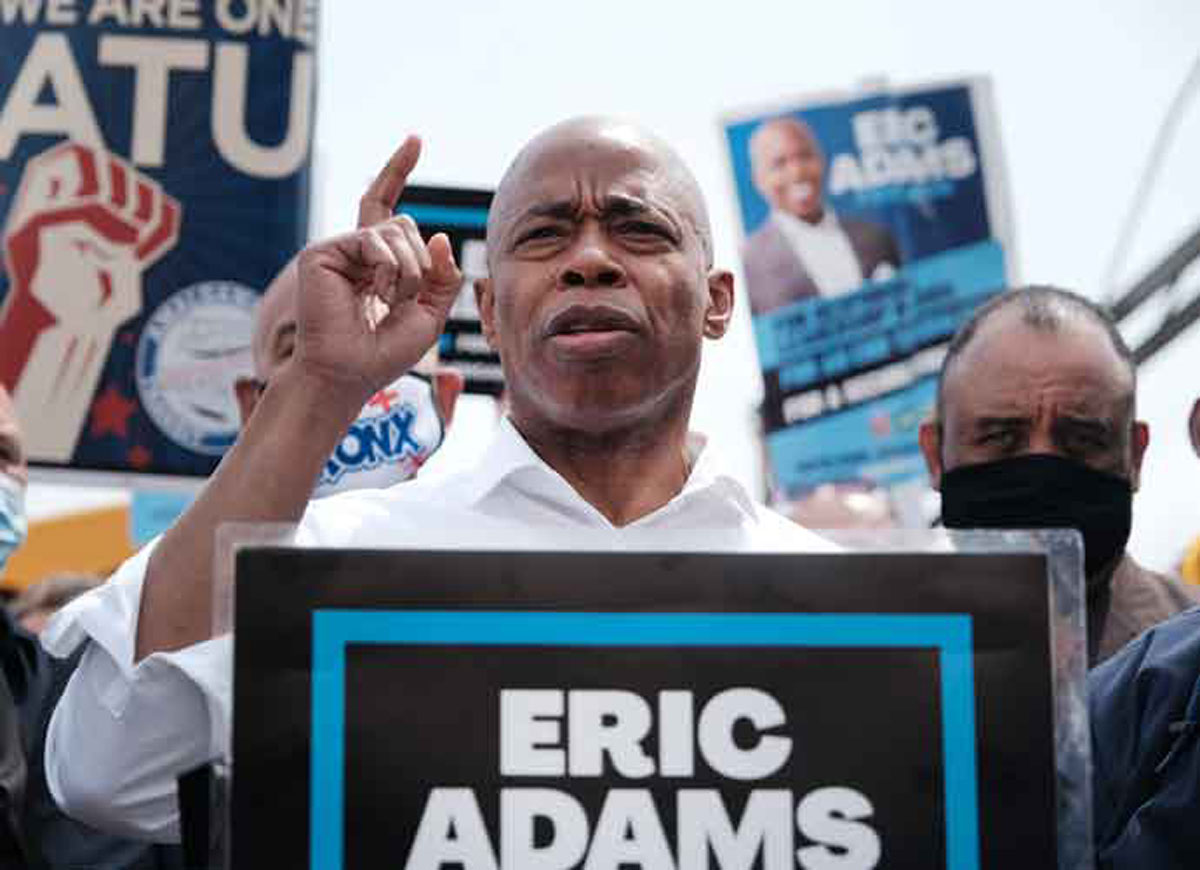The Playboy Club

3/5
Here’s the thing. Mad Men, characterized as it is by the brash, hopelessly naive optimism of America, slowly fading in the post- Eisenhower era, might be the best show on television and as velvety seductive as one of Don’s pitches, but if it were on a major network as opposed to the fashionably chic AMC the kind of ratings it pulls mean it would have never made it to a second season, nevermind a fifth. Major networks care about one thing, major advertising dollars. That means any show appearing on primetime (even 10:00pm) must be many different things to many different people, all at the same time, and immediately. NBC simply wouldn’t tolerate the kind of slowburn evolution of character it took to bring the world of Sterling Cooper to that perfect simmer that makes it such compulsive viewing, which doesn’t bode well for The Playboy Club.
A liberal interpretation of the storied goings on at the eponymous flagship nightclub in 1963 Chicago, The Playboy Club is one of two new series – the other being ABC’s jetsetter Pan Am – vying for a spot on Don’s coattails, hoping to pick up viewers wallowing at the bottom of a neat glass of scotch at the news that contractual wrangling between creator and distributor meant that the great man is conspicuous by his absence this year. It’s clear from the outset given the grey flannel suits and free-flowing liquor what the touchstone is, but given the somewhat on-the-nose opening narration (which is apparently ditched after the pilot) and the fact that a dead body drops before the title card it’s also clear that this is a network whose bread and butter is episodic procedurals as opposed to more nuanced, patient drama.
This isn’t quite Law & Order: 1963 Chicago, but there is something of a CYA, scattergun approach to the set-up. The story thus far centers on Maureen (Amber Heard), a Midwestern girl who took the proverbial midnight train in search of bright lights and all that jazz. It’s her attempted rapist, who unfortunately also happens to be a big deal mob boss, who unintentionally gets killed in the opening sequence. Enlisted to help clean up the mess is Nick Dalton (Eddie Cibrian), a suave, ambitious young attorney with one-time mob ties, now trying to go straight with an eye towards State’s office.
With the mob searching high and low for their missing boss, and Nick’s on-off girlfriend, Carol-Lynne (Laura Benanti), fading beauty and matriarch less than thrilled by this lushious young thing stealing her spotlight and sniffing round her man, Maureen and Nick find themselves treading a very thin line. Elsewhere in and around the club we have Brenda (Naturi Naughton), an African American girl seeking to become the first “chocolate centerfold” and Alice (Leah Renee), a secret lesbian engaged in a show marriage with her gay husband, both of who are involved in the underground gay movement, the Mattachine Society.
Between nodding to every hot-button social issues (race, class, sexuality, working wives) of the day, and a fake Heffner penning his journal aloud, suggesting that: “The world was changing, and we were the ones changing it, one bunny at a time” it’s obvious that this series thinks itself very forward thinking indeed. But with feminists already crying foul at the shamelessly cynical nature of exploitation marketed as empowerment – the network “accidentally” let it leak that the actresses had all signed nudity clauses – it’s clear that they’re in the minority.
While it’s very early days, there is little to suggest much in the way of sincerity on the Girl Power front. As is typical in most cases, what we get is a male idea of female empowerment, specifically that a woman can own her sexuality only so far as she can dress up in a way that men find alluring. These women might be jiving to a lively soul soundtrack by then up and comers Ike and Tina Turner, but work at the behest of men, serving the fantasies of other men. When they’re in trouble they go to men for help, and at the end of the night retire to the Playboy Mansion to parade around in their underwear for the enjoyment of the dirtiest of dirty old men. Call us crazy, but we’re a little confused as to what’s so empowering about that?
RELATED ARTICLES
Get the most-revealing celebrity conversations with the uInterview podcast!







Leave a comment